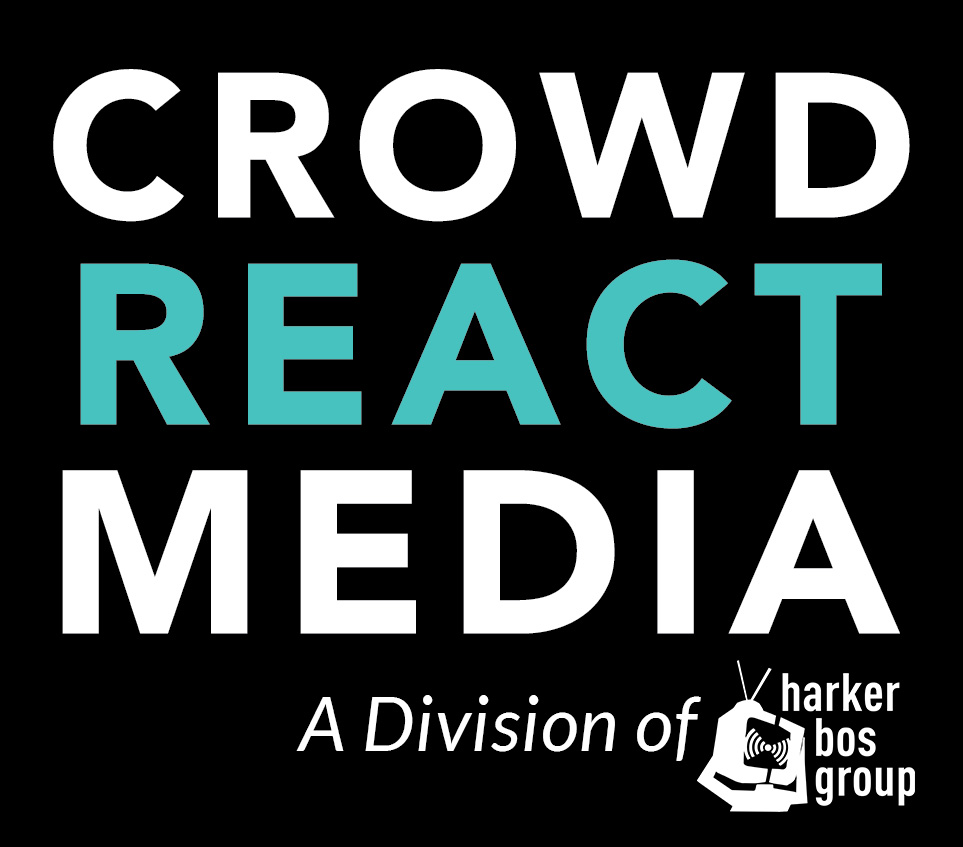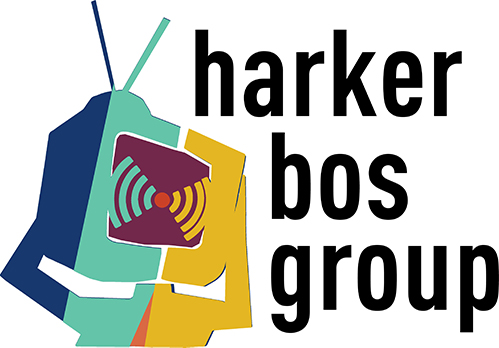Weekly Roundup – Week of March 13th, 2023
Sports Media & Sports Betting News
Mobile Sports Betting In NC Would Begin January 1 If New Bill Passes
"A new bill in the North Carolina legislature would permit wagering on sports from cellphones and other electronic devices in the state as of Jan. 1.
A bill to legalize mobile sports gambling failed in the North Carolina House by a single vote in 2022. A new effort began Thursday with the formal introduction of a new bill.
The bill was officially filed Monday morning.
A similar measure was approved by the state Senate last year, but it failed in the North Carolina House by a single vote. Legislative supporters are confident they have the votes to pass the bill this session. Opponents, who argued against gambling on moral grounds and for societal ills they say it can cause, were able to raise enough concerns to stop the bill last year, and many critics remain in the legislature.
“This bill is a bipartisan bill and we’ve learned a good bit from both sides about some of the tweaks that needed to happen,” said Jason Saine, a Lincoln County Republican and sponsor of the legislation. “We’ve worked to accommodate those concerns, and we believe we have a bill that can do better than pass. It can get broad support from both caucuses.”
House Bill 347 was filed in the House on Monday morning. The bill's other main sponsors are Republican Rep. John Bell, the House majority leader, and Democratic Reps. Zack Hawkins and Ashton Clemmons. The proposed legislation permits betting on professional, college, electronic and Olympic sports. It allows for up to a dozen operators to acquire a five-year, $1 million renewable license to take bets in the state."
Sources: Jimmy Pitaro Could Succeed Bob Iger At Disney
"The Walt Disney Co.’s real-life Game of Thrones is taking another twist with ESPN’s Jimmy Pitaro emerging as a possible successor to Bob Iger.
The ESPN chairman is on the small list of executives to possibly succeed Disney’s chief executive officer, sources told Front Office Sports.
The 72-year-old Iger is set to retire again within two years after returning in November to replace struggling former CEO Bob Chapek.
NBA Commissioner Adam Silver is an “out-of-the-box” candidate to succeed Iger, along with Disney Co-Chairman Dana Walden and former Disney and TikTok executive Kevin Mayer.
According to sources, the 53-year-old Pitaro makes an appealing candidate to lead the $84 billion media/entertainment giant. Here’s why:
In his five years at the helm of ESPN, he and No. 2 Burke Magnus have saved Disney’s crucial business partnership with the NFL. He also has the touch with top talent. Pitaro staged a lightning talent raid on Fox Sports to snare Troy Aikman and Joe Buck for “Monday Night Football.” As part of the NFL’s $113 billion, 11-year media rights deals, he did what no other ESPN boss had ever done: scored the network’s first Super Bowls after the 2026 and 2030 seasons. Plus, “flexible scheduling” for MNF this year.
Pitaro harpooned Peyton Manning, the “white whale” of sports broadcasting. Ever since Manning’s retirement from football, he’s been chased by virtually every NFL TV partner for TV work. So Pitaro got creative, offering him and his brother Eli Manning the chance to host their alternative “ManningCast” alongside the traditional telecast of MNF. He also signed rising sports media star Pat McAfee for “College GameDay.”
Pitaro joined Disney as co-president of Disney Interactive in 2010. With his digital background at the Mouse House and Yahoo, he’s leading ESPN into the streaming future. Under his watch, the ESPN+ streaming platform has grown to 25 million subscribers. He’s landed A-List talent for original ESPN+ shows, including the Manning brothers, Tom Brady, Derek Jeter, Michael Strahan, and Abby Wambach.
Pitaro has put Disney’s stamp firmly on ESPN. Iger recently gave Pitaro’s leadership a vote of confidence. He dismissed calls from activist investors to spin off ESPN. Then Iger designated Pitaro’s ESPN as one of the three global pillars of Disney, along with Disney Parks and Disney Entertainment."
YouTube Is Swallowing The Sports Podcast Star
New Heights with Jason and Travis Kelce lived up to its name in its first season. Before the brothers faced off in the Super Bowl, their show reached No. 1 overall on Apple’s charts. Produced by Wave Sports + Entertainment (WSE), it was 2022’s breakout sports podcast … If you can call it a podcast.
“Outside Wave, everyone just calls it a podcast, and that’s fine,” WSE EVP for content and strategy Mack Sovereign said. “We like to refer to it as a digital series, because we put a lot of work into programming the video side.”
Among eight media companies vying for the Kelces last year, WSE pitched its social smarts (WSE started as a creator of viral content on platforms like Instagram and Snapchat) as a key lever in growing a new show—an increasingly difficult task these days. And it worked. Since launching in September, New Heights has added more than 2 million followers across its channels—not including its core podcast following.
The Kelces’ show exemplifies how podcasts are actually still growing, despite the emerging narrative of a podcast industry faltering amid show cancellations, budget cuts and layoffs. There will likely be more shows in 2023 than ever before, more listeners, and more advertisers. Podcast ad spending is expected to eclipse $2 billion this year, according to eMarketer, tripling the 2019 total.
“It’s been, one, sort of puzzling,” iHeartPodcast Network president Will Pearson said about the rumblings of podcasting’s struggles, “and, two, it can be a little bit frustrating.”
That said, the industry is changing—dramatically. The types of shows getting greenlit have evolved, as have the ways current shows grow and monetize, according to the eight industry executives Sportico spoke with.
News & Political Media News
DeSantis And Trump See Schools As The Path To 2024 Nomination
"The minute details of a third-grader’s daily lessons are becoming a new battleground in Republican intra-party politics, with potential challenger Ron DeSantis touting his efforts to transform education in Florida and Donald Trump rushing to catch up.
The two top-polling 2024 GOP presidential hopefuls are competing over issues like sex- and health-education classes, gender identity in team sports and how far to go in striking diversity programs and controversial books from K-12 schools and even state colleges and universities.
Trump is trying to follow the successful playbook that former Carlyle Group Inc Co-CEO Glenn Youngkin used to win the Virginia governor’s mansion and helped give DeSantis a huge landslide reelection victory. In his 2021 race, Youngkin rode a wave of frustration among parents of both parties who watched their children’s video-conferenced classes during Covid lockdowns and fanned outrage when parents were kicked out of school board meetings for passionate complaints about the curricula.
The fight over education has morphed into one the Republican Party’s many talking points over culture and social issues, which have come to dominate the party’s platform since Trump became the GOP nominee in 2016.
Youngkin proved the education issue was potent with independents and suburban voters in a general election, the voters presidential candidates need after winning their primaries. Heading into the 2024 cycle, Republican candidates are making education policy a priority. A recent poll from the Pew Research Center showed the share of GOP voters who consider education a top priority jumped by 8 percentage points since 2021 from 43% to 51%."
The Implosion At The BBC, And The Transatlantic Debate About Journalistic Objectivity
"Last week, Britain’s Conservative government proposed a bill clamping down on migrants, including asylum seekers, who cross from mainland Europe by boat. Among the bill’s critics: the United Nations, whose refugee agency accused the UK of “extinguishing the right to seek refugee protection.” Also among the critics: Gary Lineker, a one-time England soccer star turned host of the venerable BBC soccer show Match of the Day, who retweeted a slick government video about the bill with the message, “Good heavens, this is beyond awful.” He then doubled down in a reply to his tweet, calling the bill “an immeasurably cruel policy directed at the most vulnerable people in language that is not dissimilar to that used by Germany in the 30s.”
If you don’t find Lineker’s criticisms particularly noteworthy you wouldn’t be the only one—but you also probably don’t work for Britain’s right-wing media, which had a field day with Lineker’s reference to 1930s Germany, in particular. The next day, Lineker was the top story on the front pages of the Mail and the Telegraph, with the latter characterizing his remark as a “‘Nazi’ migrant jibe” (putting the word “Nazi” in scare quotes even though Lineker didn’t use it). Again, there was nothing especially remarkable in this; as I’ve written before in this newsletter, conservative British newspapers reliably seize on stories that they can spin as proof of a left-wing agenda on the part of the BBC as an institution. What was more surprising was the response of the BBC itself—not only did bosses at the broadcaster signal disapproval of Lineker’s remarks (which was itself predictable), but its news division gave them top billing, with the subject of Lineker’s tweets leading both of its nightly newscasts on Wednesday, an editorial choice that struck many observers as a sop to confected outrage and a distraction from the actual contents of the immigration bill. The BBC’s prioritization of the story in turn drove more coverage across the media landscape. Soon, Lineker was being doorstepped at his home.
...
While Lineker is not a traditional journalist, his comments, and the BBC’s response to them, thus play into a second broader debate—what those who work for news organizations that like to position themselves as neutral are and aren’t allowed to say on their own time. The impartiality debate around Lineker has clear echoes of the objectivity debate that has rocked the US media world in recent years; those two terms don’t mean exactly the same thing—and again, the BBC’s impartiality commitment is quite specific—but objectivity has often been brandished by old-school journalism thinkers to signal a similar prohibition on journalistic speech that is, or could be perceived as, partisan or overtly opinionated. The debate as to the appropriateness and application of this standard in US journalism isn’t new, but it flared in the aftermath of the police murder of George Floyd in the summer of 2020 and has been back in the spotlight again this year, in the wake of a widely-shared new report calling for newsrooms to move beyond “objectivity” and criticism of coverage of trans people at the New York Times, which the paper largely dismissed as thinly veiled activism. “This is a period of social change, where public attitudes toward the media and social media are rapidly evolving,” Mark Thompson, who has served in top leadership roles at both the BBC and the New York Times, told the latter outlet for its story on the Lineker controversy. “Editorial teams around the world are racing to catch up.”"
The Semiautomated Social Network Is Coming
"It makes sense that LinkedIn would be the first major social network to push AI-generated content on its users. The Microsoft-owned company is weird. It’s corporate. It’s full of workfluencer posts and engagement bait that ranges in tone from management consultant bland to cheerfully psychotic. Happily, this is the same emotional spectrum on which AI tends to operate.
LinkedIn isn’t populating its feed with AI chatbots just yet, but last week began sharing “AI-powered conversation starters” with the express purpose of provoking discussion among users. These posts are “developed” with the help of LinkedIn’s editorial team and matched with human experts who can then offer their thoughts on topics like “how to create a consistent brand voice on social media” and “how to monitor the online reach of your writing.” So far, so anodyne — like the contents of an r/askmckinsey subreddit.
But this project is a milestone nevertheless, and may herald the start of a wider revolution for the web. It’s the first time — I know of — that a major social media platform has directly served users AI-generated content to keep them engaged. And in a time of social media stagnation, from Twitter’s manifold struggles to Meta’s desperate-looking pitch for paid subscriptions, it could point to the industry’s future: to the semiautomated social network.
It’s true, of course, that social media has been steering users’ attention using AI ever since the invention of the algorithmic feed. As soon as Facebook, Instagram, Twitter, et al. began ranking users’ content using opaque metrics, they became human-machine hybrids — shaping our actions to keep us stimulated and engaged. But there is a difference between this sort of intervention and directly sharing AI-generated content, not least because companies now have the opportunity to flood the zone with this stuff in a way that simply wasn’t possible even a few years ago. “Generative AI” may be the most overhyped trend of 2023, but it’s not without good reason. We now have AI tools that can generate endless spools of imagery, video, music, and text, while the social media sites have all the user data they need to train these systems. Why not plug one into the other?"
Recent Blogs from Crowd React Media & Harker Bos Group
Show Me The Money!
In his latest blog, Scott Masteller discusses the monetization of sports betting content, emphasizing the importance of on-air talent and top tier programming.


